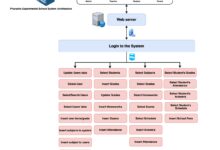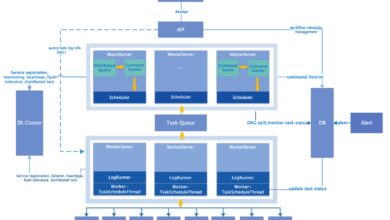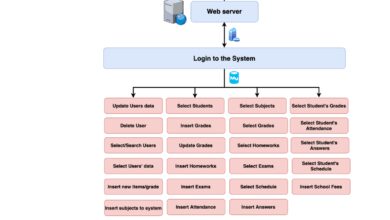System Engineer Jobs: 7 Powerful Paths to Skyrocket Your Career
Thinking about system engineer jobs? You’re tapping into one of the most dynamic, high-demand tech careers today. With innovation accelerating across industries, skilled system engineers are more crucial than ever.
What Are System Engineer Jobs? A Clear Definition

System engineer jobs involve designing, implementing, and maintaining complex systems that integrate hardware, software, networks, and people. These roles sit at the intersection of IT infrastructure and engineering principles, ensuring that all components of a technological ecosystem work together seamlessly.
The Core Responsibilities of a System Engineer
System engineers are not just tech troubleshooters—they are strategic planners and architects of digital environments. Their responsibilities span across the entire lifecycle of a system, from concept to decommissioning.
- Designing scalable and secure IT infrastructures
- Integrating new technologies with existing systems
- Monitoring system performance and resolving issues proactively
- Collaborating with cross-functional teams including developers, network engineers, and security experts
- Documenting system architecture and operational procedures
“A system engineer is the glue that holds modern IT environments together.” — IEEE Systems Journal
How System Engineers Differ from Other IT Roles
While system administrators focus on day-to-day operations, and software engineers concentrate on code development, system engineers take a holistic view. They ensure that every piece of technology aligns with business goals and user needs.
- System Engineer: Focuses on end-to-end system design and integration.
- Network Engineer: Specializes in connectivity, routing, and data flow.
- DevOps Engineer: Bridges development and operations, emphasizing automation and CI/CD pipelines.
- Software Engineer: Builds applications and services from the ground up.
Understanding these distinctions helps clarify why system engineer jobs require a broader skill set and systems-thinking mindset.
Top 7 Industries Hiring System Engineers in 2024
System engineer jobs are no longer limited to traditional IT firms. As digital transformation sweeps across sectors, demand has exploded in diverse industries. Here’s where the opportunities lie.
1. Information Technology & Cloud Services
The backbone of modern computing, IT and cloud service providers like Amazon Web Services (AWS), Microsoft Azure, and Google Cloud Platform (GCP) are aggressively hiring system engineers.
- Designing cloud-native architectures
- Managing hybrid and multi-cloud environments
- Ensuring high availability and disaster recovery
According to U.S. Bureau of Labor Statistics, employment in computer and IT occupations is projected to grow 15% from 2021 to 2031, much faster than average.
2. Telecommunications
With 5G rollout and IoT expansion, telecom companies need system engineers to manage massive networks and ensure seamless connectivity.
- Optimizing network performance and latency
- Integrating edge computing solutions
- Supporting real-time data transmission for smart devices
Companies like AT&T, Verizon, and Ericsson offer competitive packages for system engineer jobs focused on infrastructure scalability.
3. Healthcare & Medical Technology
Hospitals, clinics, and MedTech firms rely on system engineers to maintain electronic health records (EHR), medical imaging systems, and telemedicine platforms.
- Ensuring HIPAA compliance and data security
- Integrating wearable health devices with hospital systems
- Supporting AI-driven diagnostics and robotic surgery systems
The healthcare sector’s shift toward digitalization has made system engineer jobs critical for patient safety and operational efficiency.
4. Financial Services & FinTech
Banks, insurance companies, and fintech startups need robust, secure systems to handle transactions, fraud detection, and customer data.
- Building fault-tolerant banking platforms
- Implementing real-time payment processing systems
- Securing sensitive financial data against cyber threats
Firms like JPMorgan Chase, PayPal, and Stripe are investing heavily in system engineering talent to stay ahead in the digital finance race.
5. Aerospace & Defense
From satellite systems to fighter jets, aerospace and defense contractors depend on system engineers to design mission-critical technologies.
- Developing avionics and flight control systems
- Integrating radar, communication, and navigation systems
- Ensuring reliability under extreme conditions
Organizations like Lockheed Martin, Boeing, and Northrop Grumman offer some of the most challenging and rewarding system engineer jobs in the world.
6. Automotive & Autonomous Vehicles
The rise of electric and self-driving cars has transformed the automotive industry into a tech powerhouse, creating high demand for system engineers.
- Designing vehicle-to-everything (V2X) communication systems
- Integrating AI and sensor fusion for autonomous driving
- Managing over-the-air (OTA) software updates
Companies like Tesla, Waymo, and General Motors are leading the charge, offering system engineer jobs that blend mechanical, electrical, and software engineering.
7. Energy & Utilities
Smart grids, renewable energy systems, and nuclear power plants require sophisticated control systems managed by skilled engineers.
- Monitoring and optimizing power distribution networks
- Implementing SCADA (Supervisory Control and Data Acquisition) systems
- Supporting grid resilience during peak demand or outages
With the global push toward sustainability, system engineer jobs in energy are expected to grow steadily over the next decade.
Essential Skills for System Engineer Jobs in 2024
To thrive in system engineer jobs, you need a balanced mix of technical expertise, problem-solving ability, and communication skills. Let’s break down what employers are looking for.
Technical Skills Every System Engineer Must Have
These hard skills form the foundation of any successful system engineer career.
- Operating Systems: Proficiency in Linux, Windows Server, and Unix-based systems.
- Networking Fundamentals: Understanding TCP/IP, DNS, DHCP, VLANs, and firewalls.
- Virtualization & Containerization: Experience with VMware, Hyper-V, Docker, and Kubernetes.
- Cloud Platforms: Hands-on knowledge of AWS, Azure, or GCP.
- Scripting & Automation: Ability to write scripts in Python, Bash, or PowerShell to automate tasks.
- Configuration Management: Tools like Ansible, Puppet, or Chef for infrastructure as code (IaC).
Mastering these tools allows system engineers to build resilient, scalable, and efficient systems.
Soft Skills That Set You Apart
While technical skills get your foot in the door, soft skills determine long-term success in system engineer jobs.
- Problem-Solving: Diagnosing complex system failures and finding root causes.
- Communication: Explaining technical issues to non-technical stakeholders.
- Team Collaboration: Working effectively with developers, security teams, and project managers.
- Time Management: Prioritizing tasks during system outages or upgrades.
- Adaptability: Keeping up with rapid technological changes and evolving business needs.
“The best system engineers aren’t just tech wizards—they’re translators between technology and business.” — CIO Magazine
Certifications That Boost Your Resume
Earning industry-recognized certifications can significantly enhance your credibility and open doors to better system engineer jobs.
- CompTIA A+ and Network+: Foundational IT knowledge.
- Microsoft Certified: Azure Administrator Associate: For cloud-focused roles.
- AWS Certified Solutions Architect: Highly valued in cloud infrastructure roles.
- Red Hat Certified Engineer (RHCE): For Linux system expertise.
- Certified Systems Engineering Professional (CSEP): Offered by INCOSE for advanced systems thinking.
Many employers view certifications as proof of commitment and up-to-date knowledge.
How to Land System Engineer Jobs: A Step-by-Step Guide
Breaking into system engineer jobs requires strategy, preparation, and persistence. Follow this roadmap to increase your chances of landing your dream role.
Step 1: Build a Strong Educational Foundation
Most system engineer jobs require at least a bachelor’s degree in computer science, information technology, electrical engineering, or a related field.
- Focus on courses in operating systems, networking, and systems design.
- Consider pursuing a master’s degree for advanced positions or research roles.
- Alternative paths include coding bootcamps and self-taught learning through online platforms like Coursera or edX.
Education provides the theoretical base, but real-world application is equally important.
Step 2: Gain Hands-On Experience
Employers value practical experience. Start building it early.
- Set up a home lab with virtual machines to practice system administration.
- Contribute to open-source projects on GitHub.
- Volunteer to manage IT systems for small organizations or nonprofits.
- Take internships or entry-level IT support roles to gain exposure.
Real experience makes your resume stand out in competitive system engineer jobs.
Step 3: Craft a Winning Resume and LinkedIn Profile
Your resume should highlight both technical skills and achievements.
- Use action verbs: “Designed,” “Implemented,” “Optimized,” “Automated.”
- Quantify results: “Reduced system downtime by 40%” or “Managed 500+ servers across three data centers.”
- Tailor your resume for each job application using keywords from the job description.
Your LinkedIn profile should mirror your resume and include endorsements, recommendations, and project showcases.
Step 4: Ace the Interview Process
System engineer job interviews often include technical assessments, behavioral questions, and scenario-based challenges.
- Prepare for common questions like “Explain how DNS works” or “How would you troubleshoot a server outage?”
- Practice whiteboard exercises on system design.
- Demonstrate your problem-solving process, not just the answer.
- Showcase soft skills through real-life examples.
Resources like Interview Cake and LeetCode can help you prepare.
Step 5: Network Strategically
Many system engineer jobs are filled through referrals and networking.
- Attend industry conferences like AWS re:Invent, Microsoft Ignite, or Cisco Live.
- Join professional organizations like IEEE or INCOSE.
- Participate in local tech meetups or online forums like Reddit’s r/sysadmin or Stack Overflow.
Building relationships can lead to hidden job opportunities and mentorship.
Salary Expectations for System Engineer Jobs
System engineer jobs are among the highest-paying roles in the tech industry, with salaries varying by location, experience, and specialization.
Entry-Level vs. Senior Salaries
As of 2024, the salary range for system engineers reflects growing demand and skill complexity.
- Entry-Level (0–2 years): $65,000 – $85,000 per year
- Mid-Level (3–5 years): $90,000 – $120,000 per year
- Senior-Level (6+ years): $125,000 – $160,000+ per year
Specialized roles in cloud, cybersecurity, or aerospace can command even higher compensation.
Top-Paying Cities for System Engineer Jobs
Geographic location significantly impacts earning potential.
- San Francisco, CA: Average $145,000
- Seattle, WA: Average $130,000
- New York, NY: Average $125,000
- Austin, TX: Average $115,000
- Denver, CO: Average $110,000
Remote work has also opened opportunities for engineers to earn high salaries while living in lower-cost areas.
Additional Compensation and Benefits
Beyond base salary, system engineer jobs often include attractive perks.
- Bonuses (annual, performance-based, or signing)
- Stock options (especially in tech startups)
- Health insurance, retirement plans, and paid time off
- Tuition reimbursement for certifications or advanced degrees
- Flexible work hours and remote work options
These benefits can add tens of thousands of dollars in value annually.
Future Trends Shaping System Engineer Jobs
The role of a system engineer is evolving rapidly due to technological advancements and changing business needs. Staying ahead of these trends is crucial for long-term success.
1. Rise of AI and Machine Learning Integration
AI is no longer just for data scientists. System engineers are now expected to integrate AI models into production environments.
- Deploying machine learning pipelines using MLOps tools
- Monitoring AI model performance and drift
- Ensuring ethical AI use and data privacy compliance
According to McKinsey & Company, AI adoption in enterprise IT is growing at 25% year-over-year.
2. Expansion of Edge Computing
As IoT devices multiply, processing data closer to the source (at the edge) reduces latency and bandwidth usage.
- Designing edge nodes and gateways
- Securing distributed edge infrastructure
- Integrating edge systems with central cloud platforms
System engineer jobs in edge computing are expected to grow by 30% over the next five years.
3. Increased Focus on Cybersecurity
With cyberattacks on the rise, system engineers must build security into every layer of the system.
- Implementing zero-trust architectures
- Conducting regular vulnerability assessments
- Responding to security incidents and breaches
Cybersecurity skills are now a core requirement, not an add-on, in most system engineer jobs.
4. Automation and Infrastructure as Code (IaC)
Manual configuration is becoming obsolete. Modern system engineers use IaC tools to define and manage infrastructure programmatically.
- Using Terraform, CloudFormation, or Pulumi to provision resources
- Integrating IaC into CI/CD pipelines
- Version-controlling infrastructure changes like software code
This shift increases efficiency, reduces errors, and enables faster deployment cycles.
5. Sustainability and Green IT
Organizations are under pressure to reduce their carbon footprint. System engineers play a key role in optimizing energy use.
- Designing energy-efficient data centers
- Virtualizing servers to reduce hardware waste
- Monitoring power usage effectiveness (PUE) metrics
Green IT initiatives are becoming a priority in system engineer jobs, especially in Europe and North America.
Common Challenges in System Engineer Jobs
While system engineer jobs offer great rewards, they come with unique challenges that require resilience and adaptability.
1. Managing System Complexity
Modern IT environments are incredibly complex, with hundreds of interconnected services and dependencies.
- Difficulty in tracing root causes during outages
- Risk of configuration drift across environments
- Need for comprehensive documentation and monitoring
Effective system engineers use observability tools like Prometheus, Grafana, and ELK Stack to maintain visibility.
2. Keeping Up with Rapid Technological Change
New tools, frameworks, and best practices emerge constantly.
- Cloud providers release new services monthly
- Security threats evolve daily
- Legacy systems must be maintained while adopting new tech
Lifelong learning is not optional—it’s essential for survival in system engineer jobs.
3. Balancing Innovation with Stability
Businesses want to innovate quickly, but systems must remain stable and secure.
- Pressure to deploy new features fast vs. ensuring reliability
- Managing technical debt without disrupting operations
- Communicating risks to non-technical decision-makers
Successful system engineers act as both enablers and gatekeepers of change.
4. On-Call Responsibilities and Burnout
Many system engineer jobs require being on-call for emergencies, which can lead to stress and burnout.
- Night or weekend outages disrupting personal life
- High-pressure situations during critical failures
- Lack of recognition for behind-the-scenes work
Companies are increasingly adopting DevOps cultures and SRE (Site Reliability Engineering) practices to reduce toil and improve work-life balance.
FAQs About System Engineer Jobs
What is the difference between a system engineer and a systems administrator?
A system engineer focuses on designing and integrating complex systems, often at a strategic level, while a systems administrator handles day-to-day operations, maintenance, and user support. Engineers build the blueprint; administrators manage the building.
Do system engineer jobs require coding skills?
Yes, most system engineer jobs require basic to intermediate coding skills, especially in scripting languages like Python, Bash, or PowerShell. These are used for automation, troubleshooting, and infrastructure management.
Is system engineering a good career in 2024?
Absolutely. System engineer jobs are in high demand across industries, offer competitive salaries, and provide opportunities for growth into leadership or specialized technical roles. The career is future-proof due to ongoing digital transformation.
Can I become a system engineer without a degree?
Yes, while a degree is preferred, many employers value certifications, hands-on experience, and demonstrable skills. Self-taught engineers with strong portfolios and certifications can successfully enter system engineer jobs.
What are the next career steps after being a system engineer?
Common advancement paths include Senior System Engineer, DevOps Engineer, Site Reliability Engineer (SRE), IT Manager, or Solutions Architect. Some move into consulting or leadership roles like CTO.
System engineer jobs are at the heart of modern technology infrastructure. From designing cloud systems to securing critical networks, these roles demand a unique blend of technical depth, strategic thinking, and adaptability. As industries continue to digitize, the demand for skilled system engineers will only grow. Whether you’re just starting out or looking to advance your career, focusing on core skills, staying updated with trends, and building real-world experience will set you on a path to success. The future of technology runs on systems—and system engineers keep them running.
Further Reading:









